In today’s world, where electricity is an essential need for our lives, even a single minute without it seems like a stretch of darkness. To ensure that we have the benefits of electricity even outdoors, there are extremely useful gadgets known as portable generators/inverters or we can also say RV Generator.
But before progressing let’s understand a basic classification of camping and RV generator.
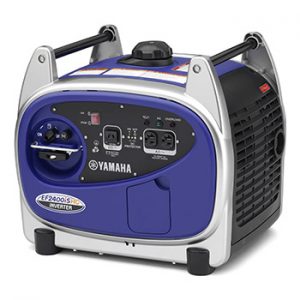 |
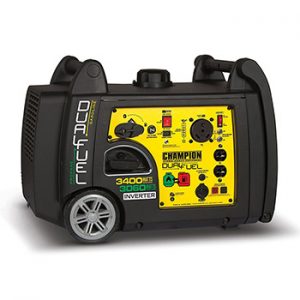 |
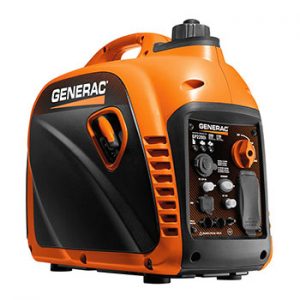 |
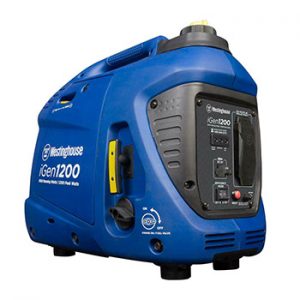 |
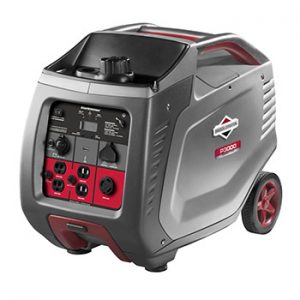 |
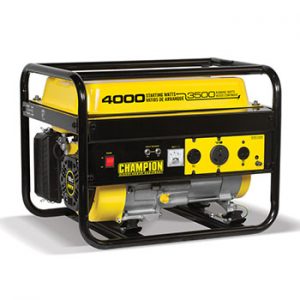 |
|---|---|---|---|---|---|
| Yamaha EF2400iSHC |
Champion Power Equipment 100263 | Generac 7117 GP2200i | Westinghouse iGen1200 | Briggs & Stratton 30545 P3000 | Champion Power Equipment 46596 |
| Starting 2400W - Continuous 2000W |
Starting 3400W - Continuous 3100W |
Starting 2200W - Continuous 1700W |
Starting 1200W - Continuous 1000W |
Starting 3000W - Continuous 2600W |
Starting 4000W - Continuous 3500W |
| Fuel Type: Gas Capacity: 1.6 gal. |
Fuel Type: Gas+Propane Capacity: 1.6 gal. |
Fuel Type: Gas Capacity: 1.2 gal. |
Fuel Type: Gas Capacity: 0.8 gal. |
Fuel Type: Gas Capacity: 1.5 gal. |
Fuel Type: Gas Capacity: 3.8 gal. |
| Tank Run-Time @ 25% Load: 8.6 hrs. |
Tank Run-Time @ 25% Load: 7.5 hrs. |
Tank Run-Time @ 25% Load: 10.75 hrs. |
Tank Run-Time @ 25% Load: 9 hrs. |
Tank Run-Time @ 25% Load: 10 hrs. |
Tank Run-Time @ 25% Load: 16 hrs. |
| Noise Level @ 25% Load: 53 dB. |
Noise Level @ 25% Load: 59 dB. |
Noise Level @ 25% Load: 58 dB. |
Noise Level @ 25% Load: 52 dB. |
Noise Level @ 25% Load: 58 dB. |
Noise Level @ 25% Load: 68 dB. |
| Weight: 75 lb. |
Weight: 96 lb. |
Weight: 46.6 lb. |
Weight: 33 lb. |
Weight: 84 lb. |
Weight: 97 lb. |
| Warranty: 3-Year Limited |
Warranty: 3-Year Limited |
Warranty: 2-Year Limited |
Warranty: 3-Year Limited |
Warranty: 2-Year Limited |
Warranty: 3-Year Limited |
| Price: $$$$ |
Price: $$$ |
Price: $$ |
Price: $$$ |
Price: $$ |
Price: $ |
| Buy on Amazon | Buy on Amazon | Buy on Amazon | Buy on Amazon | Buy on Amazon | Buy on Amazon |
GENERATOR VS. INVERTOR
More often than not, the term generator gets accidentally used as the word inverter. However, these two models vary in several ways. If you’re guilty of using these words synonymously and rest assured, you’re not alone we are going to break it down for you
-
- Generators consume raw power from the alternator while inverters recycle and clean the power for immediate use.
- Generators tend to weigh more while inverters are easier to manage and transport.
- Generators operate at near-constant cycling irate, yet Yamaha inverters match motor RPMs to the power needed ‘when demand for power goes up engine speed increases.
Going camping with family & friends gives you the chance to communicate with them and is an enjoyable and fun thing to do. Your whole camping experience gets an immense boost when you own a reliable portable generator to charge other electronics and gadgets.
Owning an RV can be immensely exciting and thrilling. You can use it for various purposes, be it for family camping journeys, solo expeditions or just to get away from all the hustle of life and take a trip with your pals. Something certain here is that your trip would become a lot better and simpler if you have a generator. What can make a difference to all your fun and outdoor trips is an RV generator? It is extremely necessary to have one, as it makes your life and journey safe, secure, tension-free and amusing.
Now, we would be assessing 6 top models from the market and dissect their pros and cons for your ease.
#1. YAMAHA EF2400ISHC PORTABLE INVERTER
With 2400 watts starting power, and 2000 watts running power, this inverter generator is a high-wattage device. This machine can run an RV air conditioner in temperatures up to 110F and will run most RV conditioners rated at or below 13,500 BTU, as well as microwaves, heaters, etc. The Yamaha EF2400iSHC throttle feature results in a much quieter generator that operates at maximum fuel efficiency, with 53 decibels of noise at 25% load and 60 decibels at full load. It has a 1.6-gallon gas tank that runs for a minimum of 8 hours at a 25% load. And with the fuel gauge on this machine, you can see the current gas level at a glance. It’s also CARB compliant, making it an ideal choice for RVs, and outdoor life.
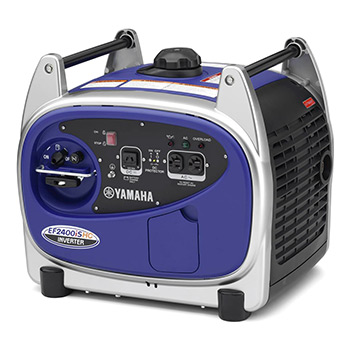
Yamaha generators boast the longest engine durability ratings that can be issued by the Environmental Protection Agency. The Yamaha EF2400iSHC is very durable. Its low oil warning system helps prevent engine damage caused by low oil. The electricity this generator produces is comparable to what your utility company offers. As such, it can safely be used with sensitive electronic devices, such as smartphones and tablets
#2. CHAMPION POWER EQUIPMENT 100263 RV READY GENERATOR
Rated at a maximum of 3400 starting watts and 3100 running watts. This inverter generator can power a variety of appliances, enough power to run a 15,000 BTU air-conditioner. This dual fuel inverter generator is priced quite attractively. it’s common to pay more for dual fuel ovens for your home, but therein case, electric versus gas may be a nice choice to have and infrequently worthwhile. Conversely, RV owners need backup options, like once they cannot get to a propane dealer and may keep the appliances in their home running off a tank of gas instead.
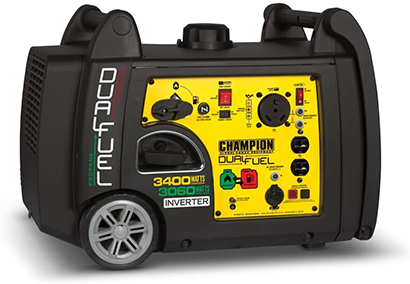
Champion offers a two to 3-year limited warranty, counting on where you purchase it. The downside is that it’s going to take weeks to urge the generator to be repaired under warranty. The manufacturer promises free lifetime support.
The battery on the generator typically causes it to start quickly. The battery must be mostly charged to run it on gasoline; this suggests you would like to start the generator and run it perhaps once every week to stay the battery charged so it’ll quickly start once you want to power it with gas. Other results of this issue are that the battery will likely be dead on the first startup, though it’ll charge after the unit runs for a short time. The generator comes with a manual pull as a backup.
#3. GENERAC 7117 GP2200I PORTABLE INVERTER GENERATOR
Generac advertises the GP2200i inverter generator as compact and straightforward to move. This is true. No matter what your fitness level is, you certainly won’t have any problems carrying this generator. The handle feels very comfortable within the hands making the generator easy to lift and carry around.
The generator provides up to 2200 starting watts and 1700 running watts and power. As far because the starting watts go, this is often the precise same amount as just in case of Honda. However, its running wattage is 100 watts but the competitor. Nonetheless, this is often a minor difference.
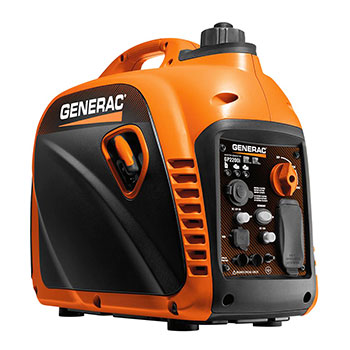
One of the best things about the Generac GP2200i inverter generator is its long run time. Even at half load, it runs for more than 7 hours. This is a really good score for a generator of this size.
In any case, this is often enough wattage to power most of the equipment typically used for camping, tailgating or RV. These include 1500 hot-water heaters, refrigerators and stoves. 1700 watts is additionally enough to run a spread of labor tools like 4-gal air compressors.
#4. WESTINGHOUSE IGEN1200 PORTABLE INVERTER GENERATOR
When you’re out at a campsite, job site, or party, sometimes you only need a touch of extra power. The Westinghouse iGen1200 Digital Inverter Generator may be a small, portable powerhouse to run your appliances while you’re out and about. it’s all the features necessary to stay your computer, phone, lights, stereo, and far more running once you need it off the grid.
Even sensitive devices are safe with this generator’s power. It offers clean, stable electricity. it’s two USB Ports (5V DC) and one 120 VAC 20A Household Duplex Outlet so that you’ll power devices via USB, or a typical outlet. The noise won’t bother you while you work; the iGen1200 offers a Double-Insulated Acoustic Enclosure, Asymmetrical Cooling Fans, and Low Tone Mufflers so it stays quiet. It holds a .8-gallon fuel tank that permits you to figure for 9 hours at 50% load.
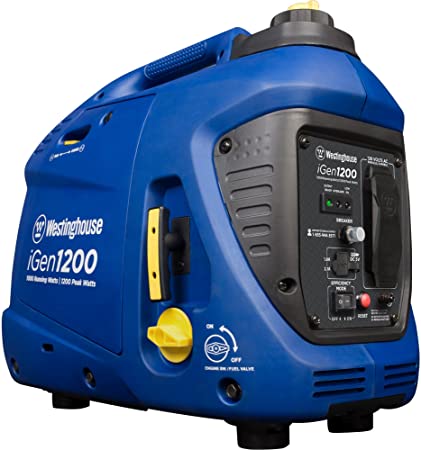
This model’s four-stroke Westinghouse engine automatically adjusts to use only the required amount of power for better fuel efficiency—30% to 50% more efficient than many other models. If you’re camping, you’ll rest assured your generator is safe to be used with its U.S. Forest Service-approved spark arrestor. This unit is additionally CARB compliant.
Don’t be fooled by the tiny package; this portable model is robust. Once you simply must have your coffee there on a camping trip, otherwise you need to take work with you when you’re on the go, the Westinghouse iGen1200 Digital Inverter Generator has just the proper amount of power to keep you running.
#5. BRIGGS & STRATTON 30545 P3000 RV READY GENERATOR
A starting output of 3000 watts and a running output of 2600 watts, it has enough power to run an average air conditioner. At 25% load and with only 1.5 gallons of gas, the P3000 runs up to 10 hours.
The Briggs & Stratton 30545 P3000 is not only powerful, but it is also quiet and easy to transport. The 10 hours run time is a great bonus for any type of situation. With a 58-decibel noise level, this generator beats out the competition when it comes to neighborhood and campsite friendly. Quieter than a normal conversation, you can rest assured that you will not be bothering anyone when you go to power up your appliances.
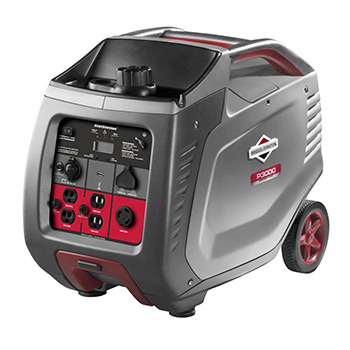
With 3000 starting watts and 2600 running watts, you can easily power up most small appliances up to the size of an RV air conditioning unit. Getting this type of power out of such a portable generator is a win in my books and I would highly recommend this generator to anyone.
#6. CHAMPION POWER EQUIPMENT 3500W RV READY PORTABLE GENERATOR
Designed with security and comfort in mind, the Champion Power Equipment 3500-watt transportable generator is a gorgeous option. And, simply as its title suggests, it’s additionally RV Generator ready, with 4000 beginning watts and 3500 non-stop watts. Powerful enough to run high-power home equipment and units that you might also have in your RV, such as the fridge, microwave, and the complete automobile’s lighting fixtures system.
It has an effective engine covered utilizing a rugged metal body that provides sturdiness to the total unit. With a giant fuel tank of 3.8 gallons that approves for a runtime of over twelve hours at 50% load.
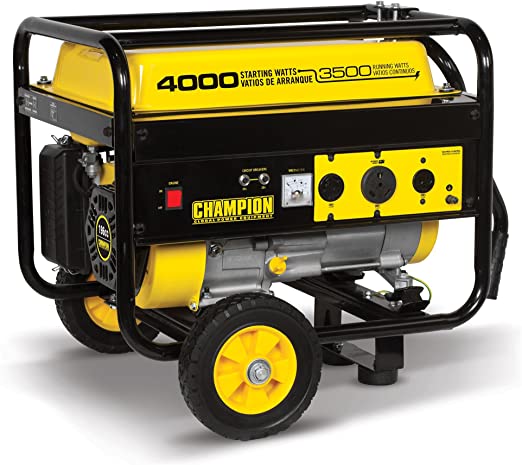
Powerful sufficient to begin and run a 15,000 BTU RV air conditioner. Featuring low oil shut-off sensors, circuit breakers, alongside with a couple of strength outlets.
Besides, Champion’s built-in surge protector, Volt Guard, continues your linked home equipment protected from any voltage fluctuation. Overall, a rugged RV generator that you can without problems join to the back of your trailer and hit the road.
COMPARISON AND SPECIFICATIONS
| Feature/Product | Yamaha EF2400iSHC | Champion Power Equipment 100263 | Generac 7117 GP2200i | Westinghouse iGen1200 | Briggs & Stratton P3000 | Champion Power Equipment 46596 |
|---|---|---|---|---|---|---|
| Wattage: | 2400W / 2000W | 3400W / 3100W | 2200W / 1700W | 1200W / 1000W | 3100W / 2600W | 4000W / 3500W |
| Engine Displacement (cc): | 171 cc. | 192 cc. | 80 cc. | 54 cc. | 171 cc. | 196 cc. |
| Engine Horsepower (HP): | 5.5 HP | 6 HP | N/A | 1.8 HP | N/A | 6.5 HP |
| Starting Method: | Recoil | Electric + Recoil | Recoil | Recoil | Recoil | Recoil |
| Total Harmonic Distortion (THD): | Less than 3% THD | Less than 3% THD | Less than 5% THD | Less than 3% THD | Less than 3% THD | Less than 15% THD |
| Fuel Gauge: | Available | Available | Not Available | Not Available | Available | Available |
| Automatic Voltage Regulator (AVR): | Available | Available | Available | Available | Available | Available |
| Outlet Protection Circuit Breakers: | Available | Available | Available | Available | Available | Available |
| Low Oil Shutdown: | Available | Available | Available | Available | Available | Available |
| Quiet Mufflers: | Available | Available | Available | Available | Available | Available |
| Spark Arrestor: | Available | Available | Available | Available | Available | Available |
| Exhaust Emissions Certificate: | EPA + CARB + CSA | EPA + CARB | CSA | EPA + CARB + CSA | CSA | EPA |
| Parallel Capable: | Not Available | Available | Available | Available | Available | Not Available |
Q. WHY DO RVs HAVE GENERATORS?
A. In case you are a newbie to the world of recreational vehicles, there would be a lot of intricacies and details that you would have to adjust to. First and foremost is that you have understood and regulated where exactly the power comes from.
The reason due to which your recreational vehicles require generators is because they provide power to them. One, it is used to store energy inside the house battery of the RVs. And two, the generators can be utilized in the form of direct plug-in for 120-volt AC power openings.
These are the 2 reasons because of which you can use plentiful energy along with the generator or stock it to use it later with the generator switched off. The latter option is way more efficient and effective because there happens to be only that much amperage at which the generator can charge the house battery. Otherwise, it will take some time to charge the house battery.
For your RV you will want to make sure you have the right match to your vehicle and can keep up with the maintenance that it requires.
Q. WHAT ARE THE FEATURES OF SOME OF THE BEST RV GENERATORS?
A. No matter for what purposes you’re using the RVs, be it for gong on vacations or to enjoy with your family during weekends, getting a good RV generator installed in your vehicle is extremely important. When you are out to choose and buy the best generator for your vehicle for camping, it’s normal to get confused. A lot of questions would come to your mind like How many watts shall the generator be capable of producing? Why is that RV generators are the way to go? How can you connect an RV generator to the rig?
Here are some of the most important qualities of a good RV Generator that you would want to know before buying one-
- It allows you and your friends to relish the time you spent on your way whilst you are at peace of mind that you are not going to lose power.
- Supplying power to all of the fittings and fixtures and appliances which are available in the motorhome or caravan that you own.
- It does not create a lot of noise.
Q. WHAT ARE THE FEATURES OF SOME OF THE BEST RV GENERATORS?
A. Generally, there are 3 ways to charge your RV batteries-
- A Portable Solar Panel is a solar panel that is quite small in size and is simple to install. It can be easily carried anywhere. Just like any other solar panel, it can convert the sunlight into heat or electricity.
- Shore power means to connect the rig to an outlet in some campground.
- A Portable Generator is a device that is either diesel or gas-powered that provides electricity temporarily. The engine turns itself into a small turbine, and that further generates electricity which can be utilized up to a certain extent of wattage.
There are several categories into which a portable generator can be classified-
- Gasoline
- Propane (LP)
- Diesel
- Dual Use
The generator’s engine can use diesel, gasoline or propane, and some other models like LP or Dual Fuel Gasoline. The option between gas or diesel is greatly made by analyzing what is readily available and is handy.
When compared, gas has a little less gallon than diesel, however, that is not enough to make a choice. Although, if a diesel or gas-powered recreational or tow vehicle is available with you, then it usually is sensible to use that fuel only in the generator.
Built-in generators almost every time do this and are filled straight from the fuel tank of the vehicle. A portable generator, nevertheless, needs that one carries extra fuel for it. This is also one of the reasons why portable fuel tanks are a risk to the safety, therefore it is important to carefully think as to which fuel you should carry, how and where.
A generator that has been fuelled with LP gas, has some pros and cons. As compared to diesel or petrol, LP has a little lower energy content, because of which more amount of fuel gets consumed. Also, portable LP containers are large, bulky and weighty, although they are safer and are cleaner when it burns and causes fewer problems in contrast with gasoline.
Q. WHAT ARE THE TYPES OF RVs CLASSIFIED based on GENERATION METHOD?
A. Generators can produce alternating current power through one of the 2 methods, i.e. alternator or inverter. In the first type, which is Alternator, the alternating current is produced directly when the engine spins mechanically the armature within a stator. However, the RPM must spin at a relentless rate to produce 60 Hz power, standard 120v.
The RPMs shall be the same no matter how light or how heavy the electrical load is, so the Alternator RV has a little high level of sound and vibration. If the watt or electrical load differs much, in that case, the Alternator type is not very desirable. However, if you try running at heavy loads, it wouldn’t vary a lot.
On the other hand, the Inverter type RVs produce direct current along with a generator that is engine driven and then to drive an inverter, it makes use of DC output, which further generates an average 120vac. This sounds a bit inefficient and ineffective, although it has multiple advantages that balance all the losses there.
As compared to an Alternative type, the Inverter type is silent and electronic. It makes no noise and creates no disturbance to the user. When an electrical load is light, the Inverter type regulates back as it operates at variable and adjustable RPMs, which reduces the sound or noise created, controls the vibration and consumption of fuel. This also one of the reasons why Inverter generators are the foremost choice of recreational vehicle users.
Q. HOW WOULD I KNOW WHAT SIZE OF GENERATOR WOULD I NEED?
A. To determine the right size of the generator for your recreational vehicle, you should know how much electricity you would be using. First, determine what all electrically operating devices you want to charge from the generator. Check the RV for all electrical appliances which operate on 120 volts. Blender, microwave, TV, AC and rest of the kitchen appliances usually need the most power to charge, however, the smaller sized appliances might add up. RV lights mostly are of 12 volts, although few might be of 120 volts. The electrical appliance that uses the biggest power is the AC.
Second, sum up the power requirements, in terms of ‘watt’, for all your devices that you are expecting to put on charge at the same time. The light bulbs, and other electrical devices, for instance, the hairdryers, electrical steamer, and heaters display the wattage ratings along with wattage requirements that they would require, are printed on them. You may, however, determine the wattage requirement of the device by multiplying the volts by the amps. In case you are just not able to find the wattage requirement of the devices, you may have a look at this chart.
Last, add the wattage requirements together for all the electrically operating devices which you would want to use at the same time. This would be the minimum wattage that you would require from the generator. You must also consider a generator that has a power rating slightly more than what your minimum requirement is. It is possible to get away with a generator that is small in size if you are not planning to run everything at the same time.
This way you would be able to conclude as to what kind of generator you require.
Q. WOULD AN RV GENERATOR CHARGE MY RV HOUSE BATTERY?
A. No, not directly. However, the generator you are using for your RV generates and provides the power to function the aboard charger or converter, that powers the RV battery.
Q. CAN I RUN THE RV GENERATOR FOR EXTRA POWER WHILST I AM HOOKED UP TO THE SHORE POWER AT A CAMPGROUND?
A. To keep the campground power sources and the generator power distinct and separate, the RV electrical systems are designed. Connecting both these power sources with each other is not only unsafe but also unreliable and shall never be practiced. Few RV manufacturers may wire the recreational vehicle to allow you to power another AC with the RV generator to check the operator manual of your vehicle. If your recreational vehicle is not wired similarly, rather has a separate circuit for the second AC, it can be rewired to do so but that must be done only with the assistance of a professional technician or RV expert.
Q. CAN I POWER THE MOTORHOME RV AC WITH THE RV's GENERATOR WHILE I AM TRAVELING ON THE ROAD?
A. Yes, you may power the motorhome RV AC along with the RV’s generator while you are on the road with any other 120 volts electrical appliance, but only for as long as you are not exceeding the power rating of your generator.
Q. IS IT OKAY IF I RUN MY RV GENERATOR JUST FOR A FEW MINUTES, SAY to HEAT OR COOK SOMETHING IN THE MICROWAVE?
A. Preferably, generators must be run for at least thirty minutes to give them a chance to warm up. Once they are warmed up, using the generator for five minutes breaks would be fine.
Q. WHAT DOES IT MEAN TO "EXERCISE" MY RV GENERATOR?
A. Manufacturers themselves prefer and also recommend that running the RV generator for a minimum of thirty minutes every month is a must. Running the generator despite not using it to charge or power your electrical appliances, means “exercising” the generator. But do not forget to turn on at least some appliances so that the generator operates a little, while it is running.

Leave a Reply